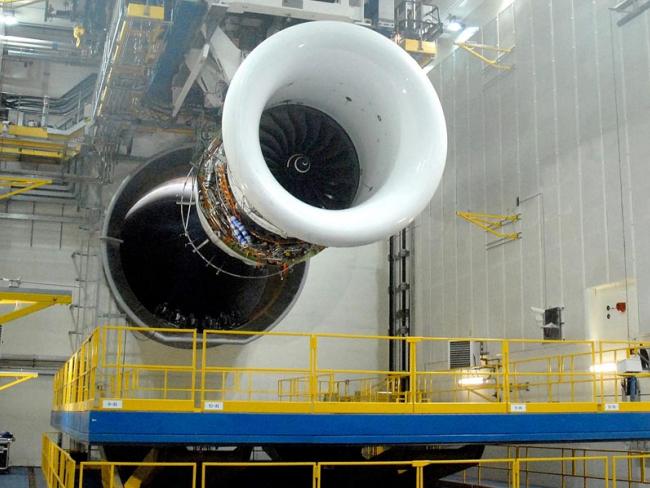
Trent turbofan under test at Rolls-Royce Derby, where it is currently testing UltraFan the next generation of efficient engine technology. Photo Cherry Salvesen, via Wikimedia Commons (CC BY-SA 3.0).
Workers at aerospace and defence company Rolls-Royce plc recently rejected the company’s pay offer in response to the workers’ cost of living claim made on 2 February this year. They are considering their next step in the face of obstructive tactics by the company.
The workers claimed a 6.5 per cent pay increase plus a £500 consolidated cash lump sum. They later included a 1 hour reduction in the working week. This was hailed by their unions, Unite and GMB, as fair and reasonable in the current inflation and industrial relations climate.
The offer, made after messy negotiations, was for a 6.5 per cent increase and a £500 unconsolidated cash lump sum with no reduction in hours. It went to a consultative ballot at the request of Rolls-Royce, which claimed that it could afford no more.
The ballot result, announced on 3 May, showed a decisive rejection by all four bargaining groups nationally – ranging from 97 per cent to 85 per cent. It seems Rolls-Royce workers feel strongly that the company can afford to meet the claim in full and are holding out on a relatively small part of the settlement.
This sent a clear message to the company that the offer was an insult to those struggling to cope with the crippling rate of inflation. And it was after significant efforts by the union negotiating team to be positive and reasonable at all times.
To the workers this looks like a carbon copy of the 2022 pay round. The company dragged its feet, while telling the workforce that it was doing its utmost and the problem was union intransigence.
The company also made the bizarre claim to its workers that it does not have influence over how and what the union asks the members in the ballots that are held. These ballots are held in accordance with the restrictive law imposed on trade unions.
• A longer version of this article is on the web at www.cpbml.org.uk.
